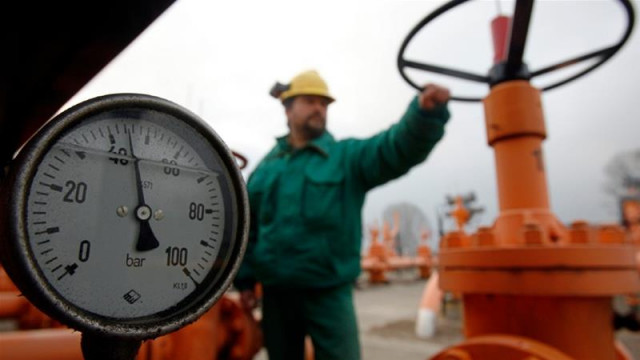Pakistan's circular debt in gas sector jumps to Rs250b
Petroleum Minister Omar Ayub cites absence of weighted average price as reason behind the hike

Petroleum Minister Omar Ayub has blamed the government of Sindh for possible worsening of gas crisis in Karachi and lamented that the circular debt had swelled to Rs250 billion in the gas sector alone.
Speaking at a press conference along with Special Assistant to Prime Minister on Petroleum Nadeem Babar on Thursday, Ayub accused the Sindh government of a lack of cooperation in giving the Right of Way for building a pipeline at Port Qasim, though the issue had been raised for the past one and a half year.
“Now, the matter has gone way beyond Article 158 of the Constitution that gives the right to gas-producing provinces to utilise the local gas first,” he said.
Ayub pointed out that a gas conference was held at the Prime Minister’s Office following recommendation of the Council of Common Interests (CCI) to build consensus on a weighted average gas price.
According to him, the circular debt in gas sector has jumped to Rs250 billion due to the absence of the weighted average price.
Responding to a question regarding electrocutions during Karachi rains, he said that a majority of shareholders in K-Electric were from the private sector and blamed the Sindh government for backing the power company.
The minister added that a National Electric Power Regulatory Authority (Nepra) member belonging to Sindh had played a key role in reducing the fine imposed on K-Electric.
Speaking on the occasion, Babar warned of gas shortage of around 250-400 mmcfd in the Sui Southern Gas Company (SSGC) system, which would affect all sectors including the industry and domestic consumers. “There will be no option available with the government other than rationing of gas for different sectors in Karachi,” he said. “However, the domestic sector will be given priority in provision of gas during cooking hours.”
On the other hand, Sui Northern Gas Pipelines Limited (SNGPL) would face gas shortage of 300-350 mmcfd in the peak winter season, therefore, there would be no possibility of diverting liquefied natural gas (LNG) to the SSGC system, he said.
“If the Sindh government cooperates in giving the Right of Way for building the pipeline, the federal government will complete it by the end of December 2020,” he said.
Babar added that two LNG terminals, currently handling 1.2 bcfd of LNG, would be able to handle 1.3 bcfd following completion of the pipeline. However, he said Sindh province was not ready to consume LNG and the weighted average gas price was the only option. The two government officials held the previous Pakistan Muslim League-Nawaz (PML-N) government responsible for ignoring domestic gas exploration activities.
“The previous government awarded just one exploration block during its five-year rule and its impact will continue to reflect over the next three years,” Babar said.
He said the Pakistan Tehreek-e-Insaf (PTI) government had conducted an auction of 10 exploration blocks and it was now planning to announce the auction of 20 more blocks in the first week of October.
Babar pointed out that the annual depletion of raw gas was 9%, which would contract to 6% after the induction of new gas discoveries. The special assistant added that 26 discoveries of gas had been made in the past 24 months that added 250 mmcfd to the system, however, there had been depletion of 400 mmcfd.
Responding to a question regarding a report of Prime Minister’s Inspection Commission, he said the report was not based on actual data.
“After compiling a report, the Petroleum Division invited a team of the Inspection Commission to build consensus on the data,” he said. “Live data transmission from wells has been active and the Oil and Gas Regulatory Authority (Ogra) has access to it.”
In response to a question about the gas infrastructure development cess (GIDC), Babar said four parties including the stakeholders from the All Pakistan Textile Mills Association (Aptma), CNG and fertiliser sectors had filed a review petition in the Supreme Court.
He said Aptma had obtained stay order from the Lahore High Court on GIDC calculation, adding that SNGPL and SSGC had included GIDC in the bills of September for recovery in 24 installments.
Published in The Express Tribune, September 25th, 2020.
Like Business on Facebook, follow @TribuneBiz on Twitter to stay informed and join in the conversation.



















COMMENTS
Comments are moderated and generally will be posted if they are on-topic and not abusive.
For more information, please see our Comments FAQ